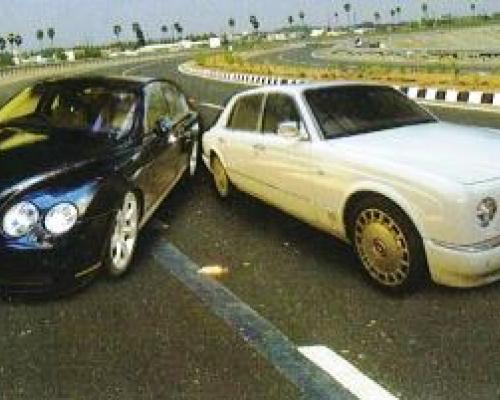10 Major Mistakes Car Owners Make When Claiming Car Insurance

Filing a car insurance claim can be a stressful experience, especially after an accident or damage to your vehicle. However, making the wrong moves during this process can delay your claim, reduce your payout, or even result in your claim being denied. Here are 10 major faults that car owners often make when claiming car insurance—and how to avoid them.
1. Not Reporting the Incident Immediately
One of the most common mistakes car owners make is delaying the report of an accident or damage to their insurance provider. Most insurance policies require that accidents be reported within a specific timeframe—usually within 24 to 48 hours. Failing to do so can result in the denial of your claim, as insurers may see the delay as suspicious or an attempt to manipulate the timeline.
Tip: Always report an accident or damage to your insurer as soon as possible, even if you’re not sure whether you’ll file a claim. Early reporting helps avoid complications later on.
2. Failing to Document the Incident Properly
Lack of proper documentation can severely impact the success of your claim. Many car owners fail to take clear photos of the damage, obtain witness statements, or collect necessary police reports. Without solid evidence, your insurance company may not be able to determine fault or the extent of the damage.
Tip: Always document the scene thoroughly. Take clear photos of all damage, gather witness contact information, and file a police report if necessary.
3. Not Reading the Insurance Policy
Car owners often make the mistake of not fully understanding their insurance policy. They may not realize that certain types of damage or situations aren’t covered under their plan or might have high deductibles, leaving them responsible for a large portion of the repair costs.
Tip: Familiarize yourself with the terms, exclusions, and deductibles of your policy before filing a claim. Know what is and isn’t covered.
4. Overestimating the Value of Your Vehicle
When it comes to filing a claim for vehicle damage or loss, many car owners overestimate their car’s value, which can lead to a dispute with the insurance company. If you claim an inflated value, it could cause delays or denials if the insurer finds inconsistencies.
Tip: Be realistic about the value of your car. Use tools like Kelley Blue Book or NADA to get an accurate estimate based on the make, model, year, and condition of your vehicle.
5. Not Reporting Minor Damages
Some car owners believe that minor damages, such as small dents or scratches, aren’t worth reporting. However, neglecting to report all damages can create problems when trying to claim for more significant issues later. Insurers may view unreported damages as part of the same incident, which can lead to confusion and reduced payouts.
Tip: Report every damage, no matter how minor, to avoid complications when filing a claim. It’s better to have all damages documented.
6. Not Contacting Your Insurer Before Accepting a Settlement
Car owners often make the mistake of accepting a settlement offer from a repair shop or another party before contacting their insurer. Insurance companies have preferred repair partners, and accepting an offer before notifying your insurer can complicate your claim.
Tip: Always consult your insurer first before agreeing to any settlement. They can guide you on the next steps and help you navigate the process smoothly.
7. Not Keeping Track of Repair Costs
If you’re repairing your vehicle yourself or going through a repair shop, failing to keep detailed receipts and records of your repair costs can hinder your claim. Insurers require a clear record of expenses to process your claim properly.
Tip: Keep receipts for all repair work, rental cars, and other expenses related to your claim. Submit these to your insurer along with your claim.
8. Lack of Honesty or Providing False Information
Providing inaccurate or false information during the claims process can lead to your claim being denied or even result in legal consequences. Some car owners try to exaggerate the damages or conceal pre-existing issues in an attempt to get a larger payout.
Tip: Always be truthful and transparent with your insurance company. Providing false information is not only unethical but also could lead to penalties.
9. Choosing the Cheapest Repair Shop
Some car owners opt for the cheapest repair shop to save money on deductibles or out-of-pocket expenses. However, choosing an unreliable or subpar repair shop can affect the quality of the repairs and the overall claim process. Insurance companies may also deny the claim if the repair work doesn’t meet their standards.
Tip: Choose a reputable repair shop, preferably one recommended by your insurer. Quality repairs ensure that your car is fixed correctly and that your claim is processed smoothly.
10. Failing to Follow Up on the Claim
After filing a claim, many car owners fail to follow up regularly with their insurer, leading to unnecessary delays. If you don’t stay on top of the process, your claim may stall, or you might miss important deadlines for submitting additional documents.
Tip: Stay proactive and regularly check in with your insurance company about the status of your claim. Keep track of all important dates and any documents required.
Conclusion
Navigating the car insurance claim process can be tricky, but by avoiding these common mistakes, you can ensure a smoother experience and a fair settlement. Remember to report incidents promptly, document everything thoroughly, and understand your policy to maximize your chances of a successful claim.




